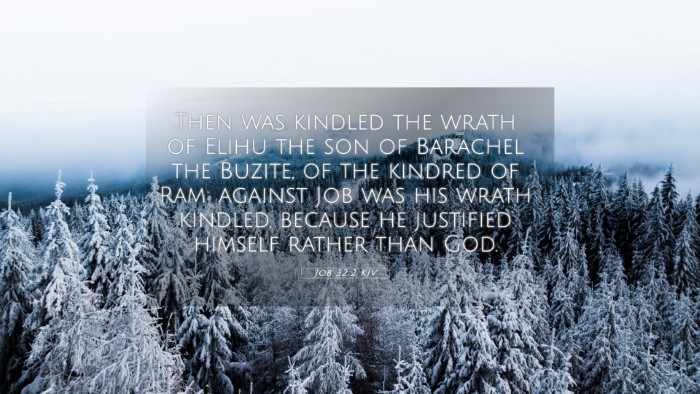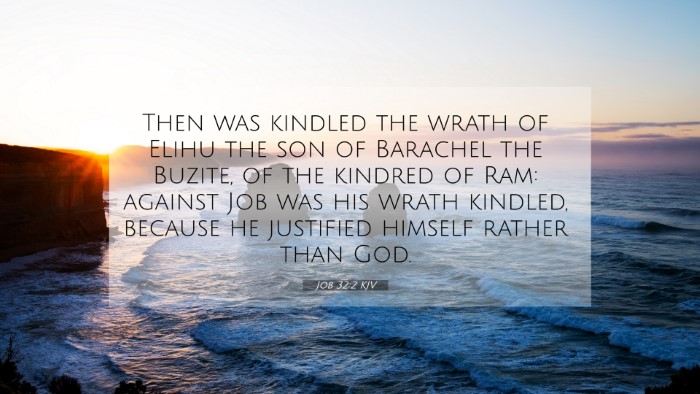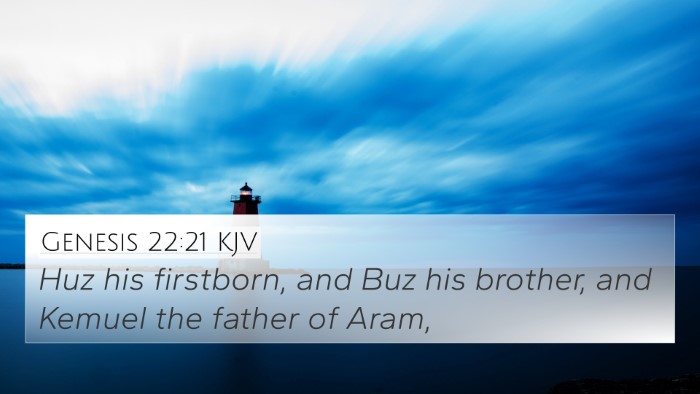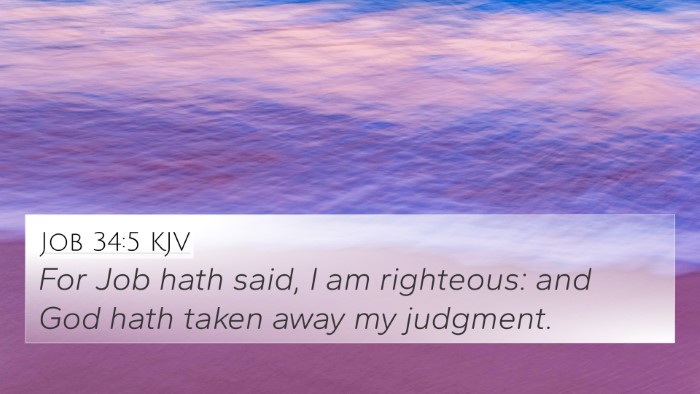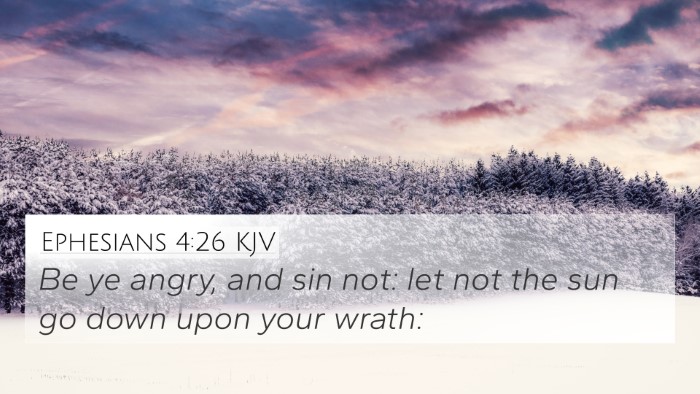Old Testament
Genesis Exodus Leviticus Numbers Deuteronomy Joshua Judges Ruth 1 Samuel 2 Samuel 1 Kings 2 Kings 1 Chronicles 2 Chronicles Ezra Nehemiah Esther Job Psalms Proverbs Ecclesiastes Song of Solomon Isaiah Jeremiah Lamentations Ezekiel Daniel Hosea Joel Amos Obadiah Jonah Micah Nahum Habakkuk Zephaniah Haggai Zechariah MalachiJob 32:2 Similar Verses
Job 32:2 Cross References
Then was kindled the wrath of Elihu the son of Barachel the Buzite, of the kindred of Ram: against Job was his wrath kindled, because he justified himself rather than God.
Uncover the Rich Themes and Topics of This Bible Verse
Listed below are the Bible themes associated with Job 32:2. We invite you to explore each theme to gain deeper insights into the Scriptures.
Job 32:2 Cross Reference Verses
This section features a detailed cross-reference designed to enrich your understanding of the Scriptures. Below, you will find carefully selected verses that echo the themes and teachings related to Job 32:2 KJV. Click on any image to explore detailed analyses of related Bible verses and uncover deeper theological insights.
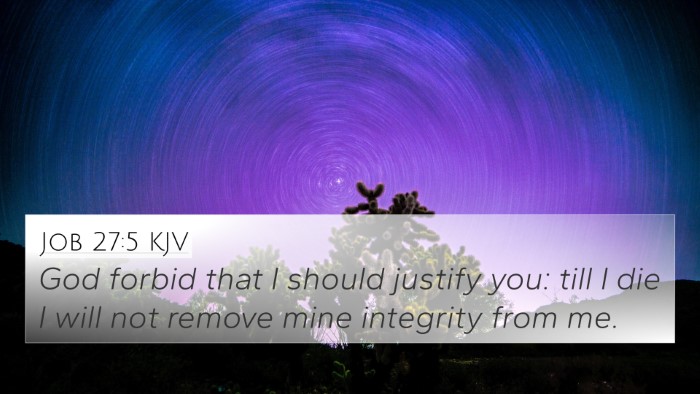
Job 27:5 (KJV) »
God forbid that I should justify you: till I die I will not remove mine integrity from me.
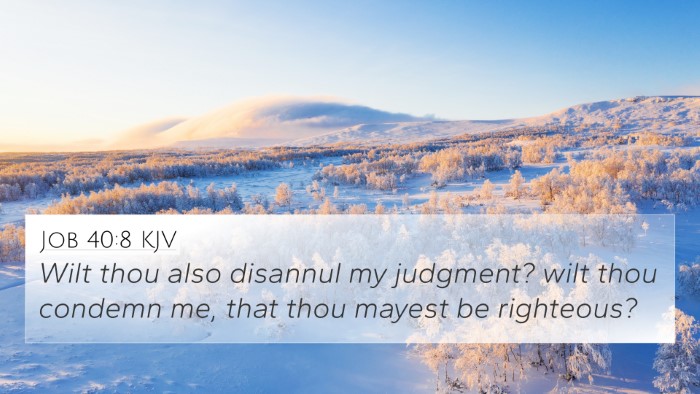
Job 40:8 (KJV) »
Wilt thou also disannul my judgment? wilt thou condemn me, that thou mayest be righteous?
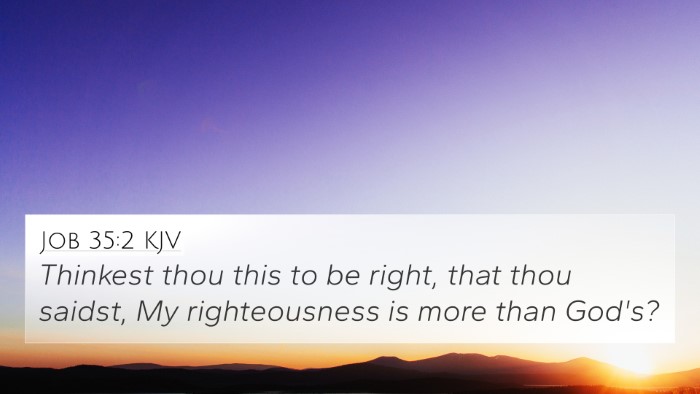
Job 35:2 (KJV) »
Thinkest thou this to be right, that thou saidst, My righteousness is more than God's?
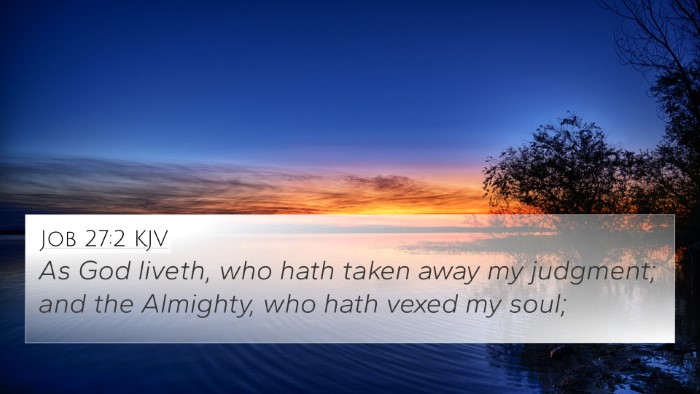
Job 27:2 (KJV) »
As God liveth, who hath taken away my judgment; and the Almighty, who hath vexed my soul;

Mark 3:5 (KJV) »
And when he had looked round about on them with anger, being grieved for the hardness of their hearts, he saith unto the man, Stretch forth thine hand. And he stretched it out: and his hand was restored whole as the other.

Psalms 69:9 (KJV) »
For the zeal of thine house hath eaten me up; and the reproaches of them that reproached thee are fallen upon me.
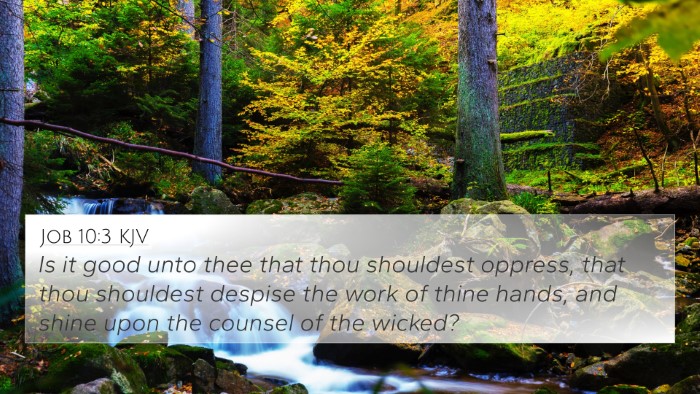
Job 10:3 (KJV) »
Is it good unto thee that thou shouldest oppress, that thou shouldest despise the work of thine hands, and shine upon the counsel of the wicked?
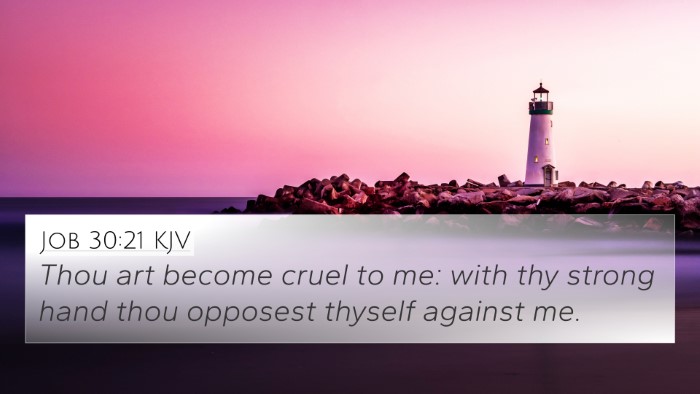
Job 30:21 (KJV) »
Thou art become cruel to me: with thy strong hand thou opposest thyself against me.
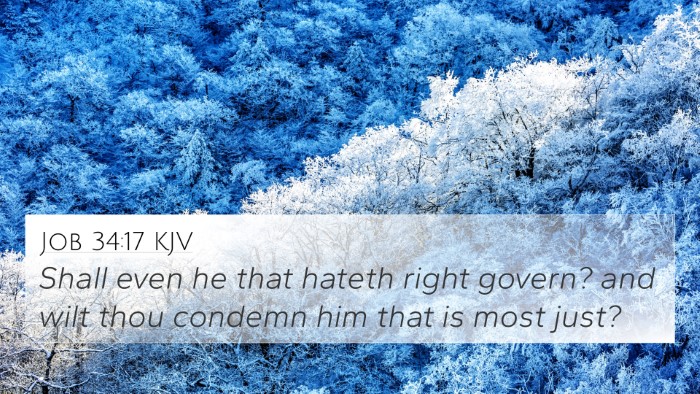
Job 34:17 (KJV) »
Shall even he that hateth right govern? and wilt thou condemn him that is most just?
Job 32:2 Verse Analysis and Similar Verses
Understanding Job 32:2
Job 32:2 (KJV): "Then was kindled the wrath of Elihu the son of Barachel the Buzite, of the kindred of Ram: against Job was his wrath kindled, because he justified himself rather than God."
The verse presents a critical moment in the Book of Job, focusing on Elihu, a young man who speaks after Job's three friends have exhausted their arguments. Elihu's anger is triggered by Job's defense of his own righteousness at the expense of God's character. This verse sets the stage for Elihu's subsequent speeches, which aim to correct Job's misunderstanding of God's justice and sovereignty.
Commentary Insights
Matthew Henry's Commentary
Henry observes that Elihu's anger is not merely emotional but rooted in a concern for God's glory. He emphasizes that Elihu recognizes both the seriousness of Job's plight and the risk of misrepresenting God through self-justification.
Albert Barnes' Notes
Barnes explains that Elihu is distinct from Job's friends; he is younger but possesses wisdom. His indignation arises from Job's justifications which challenge the righteousness of God. Barnes notes that Elihu's role is pivotal as he introduces a different perspective, focusing on God's greatness and man's insignificance.
Adam Clarke's Commentary
Clarke emphasizes Elihu's lineage and the symbolic significance of his name, suggesting it reflects profound meaning in the context of God's providence. Clarke also points out Elihu's respectful approach, demonstrating a youthful eagerness to present truth without the bitterness of accusation found in the earlier dialogues.
Thematic Connections to Job 32:2
This verse can be connected thematically to various scriptural passages that explore the nature of suffering, righteousness, and God’s justice:
- Job 1:22: "In all this Job sinned not, nor charged God foolishly." - A testament to Job's initial integrity in the midst of suffering.
- Job 9:2: "I know it is of a truth: but how should man be just with God?" - Job's realization of the challenge in understanding divine justice.
- Job 10:2: "I will say unto God, Do not condemn me; shew me wherefore thou contendest with me." - Job's struggle to comprehend God’s workings.
- Job 13:18: "Behold now, I have ordered my cause; I know that I shall be justified." - Job's affirmation of his righteousness.
- Isaiah 55:8-9: "For my thoughts are not your thoughts, neither are your ways my ways, saith the LORD." - Highlighting the vast difference between God’s perspective and human understanding.
- Romans 3:20: "Therefore by the deeds of the law there shall no flesh be justified in his sight: for by the law is the knowledge of sin." - The central theme of human inability to justify oneself before God.
- James 1:20: "For the wrath of man worketh not the righteousness of God." - Reflecting on Elihu's anger and its implications regarding human response to divine challenges.
Cross-Referencing Biblical Texts
This verse acts as a fulcrum for understanding broader themes in Scripture regarding justification and the nature of God’s righteousness. The following are significant connections:
- Matthew 5:20: "For I say unto you, That except your righteousness shall exceed the righteousness of the scribes and Pharisees, ye shall in no case enter into the kingdom of heaven." - The necessity for true righteousness.
- Romans 5:1: "Therefore being justified by faith, we have peace with God through our Lord Jesus Christ." - The New Testament perspective on justification compared to Job’s struggle.
- Hebrews 12:14: "Follow peace with all men, and holiness, without which no man shall see the Lord." - The pursuit of righteousness as a divine expectation.
Practical Application and Reflection
As readers reflect on Job 32:2, it is crucial to evaluate personal responses to suffering and the tendency to justify oneself. Here are some key takeaways:
- Understanding God’s Sovereignty: Recognize the limits of human understanding in light of God’s infinite wisdom.
- Humility in Suffering: Approach God with humility, acknowledging His just nature despite personal turmoil.
- Righteous Advocacy: Strive to support fellow believers without compromising God’s truth.
Conclusion
Job 32:2 serves as a pivotal moment in the narrative, emphasizing Elihu's righteous anger and the need for truthful dialogue regarding God's justice. By cross-referencing related verses, one can glean deeper insights into the continuous dialogue about human righteousness versus divine character throughout the Bible.

